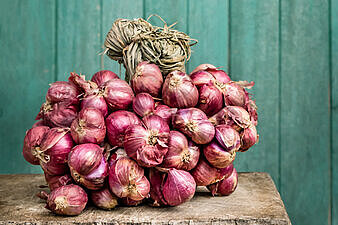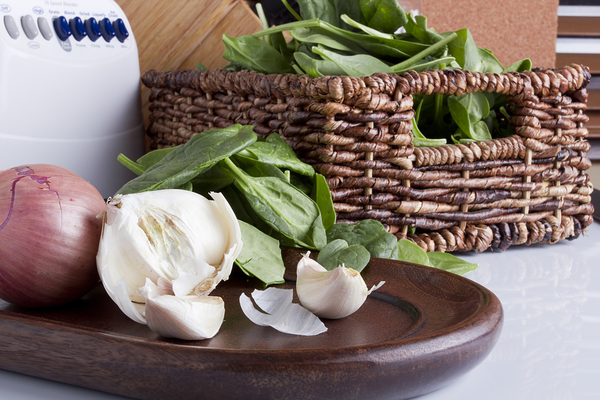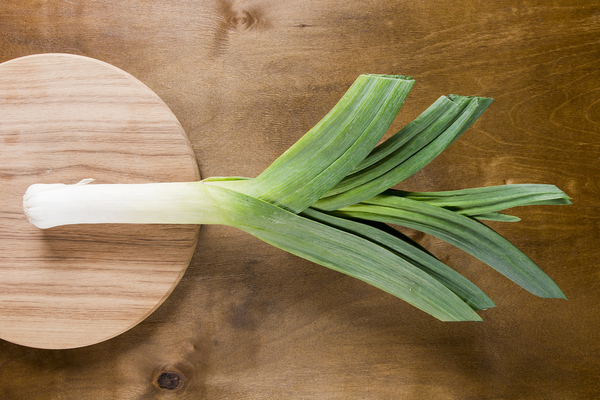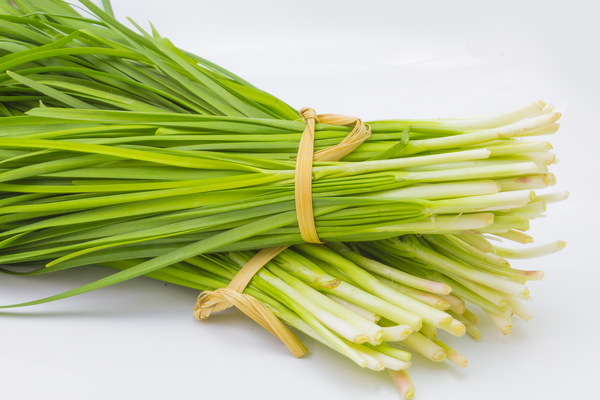Onion
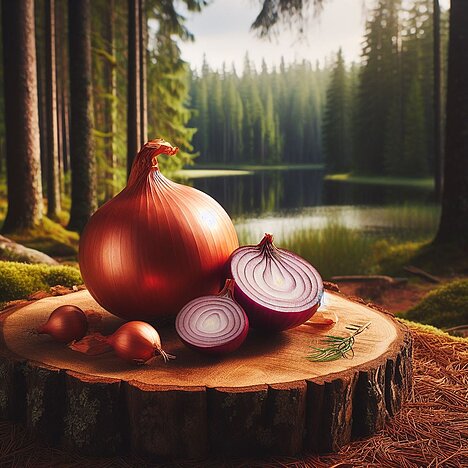
What are onions?
Onions are vegetables that belong to the allium family. They have a round shape, a brown or red skin and white or purple layers inside. Onions have a pungent taste and an intense smell that often causes tears when they are cut. Onions are eaten raw, cooked, fried or pickled and are rich in vitamins, minerals and antioxidants.
Why are onions poisonous to dogs?
Onions contain sulphur-containing compounds that can cause digestive problems and damage red blood cells in dogs. The consequences can range from mild stomach problems to severe symptoms of poisoning. The red blood cells are responsible for the transportation of oxygen in the body. If they are destroyed, this can lead to anemia, which can be life-threatening. In addition, the decomposed blood cells can put a strain on the kidneys and lead to kidney failure.
The toxicity of onions depends on the quantity, frequency and form in which they are eaten. Raw onions are the most dangerous, but cooked, dried or powdered onions can also be poisonous. Other allium plants such as garlic, chives or leeks can also be poisonous to dogs.
There is no safe amount of onions for dogs, but as a rule of thumb, more than 5 grams of onions per kilogram of body weight can lead to symptoms of poisoning. This means that one medium sized onion can be enough to kill a medium sized dog.
What to do if your dog has eaten onions?
If you suspect or observe that your dog has eaten onions, you should see a vet immediately. The sooner your dog is treated, the better his chances of recovery. Symptoms of onion poisoning can take a few hours or days to show up and include
- Nausea
- vomiting
- diarrhea
- weakness
- loss of appetite
- abdominal pain
- Loss of coordination
- Heavy salivation
- Increased heart and respiratory rate
- Poorly perfused mucous membranes
The vet will examine your dog and take various measures depending on the severity of the poisoning. These may include
- Inducing vomiting
- Administer activated charcoal
- Fluid therapy
- Blood transfusion
- Monitoring kidney function
- Medication for anemia
How can you protect your dog from onion poisoning?
The best way to prevent onion poisoning is to prevent your dog from coming into contact with onions in the first place. Always keep onions and other allium plants out of your dog's reach and make sure that he does not eat any food that contains onions. This can include:
- Pizza
- soups
- sauces
- salads
- Sausages
- Ready meals
If you want to give your dog something from the table, make sure it doesn't contain onions or other toxic ingredients. Also find out about other foods that can be harmful to dogs, such as chocolate, grapes or avocado.
Also, do not use onions or garlic as a home remedy for parasites such as ticks or worms. There is no scientific evidence that they are effective, but they can harm your dog. Instead, use suitable preparations recommended by your vet.
Onions are poisonous to dogs and can cause serious health problems. You should never feed your dog onions or allow him to snack on foods that contain onions. If your dog has eaten onions, see a vet immediately. With prompt treatment, your dog may survive onion poisoning. To avoid poisoning, always store onions safely and learn about other poisonous foods for dogs.
Properties 4
Are you looking for other ingredients with a specific property?
Just click on them to find more.
If you notice any signs of hypersensitivity or poisoning in your dog, you should see your vet immediately. We are not a substitute for a vet, but we try to be as accurate as possible. Every dog reacts differently and we recommend you get a second opinion or consult your vet if in doubt.
Stay healthy and take good care of your four-legged friend!😊
Similar to Onion
Shallots contain a substance called N-propyldisulphide, which can damage the red blood cells of dogs. This can lead to anemia, which is a lack of red blood cells that carry oxygen around the body....
Garlic is a plant from the onion family that forms a bulb with several cloves. Each clove contains an active ingredient called allicin, which is responsible for the typical smell and taste of...
Leeks can have some health benefits for dogs when fed in small amounts. For example, leeks can: Boost the immune system as it is rich in vitamin CAid digestion as it contains fiberSupport blood...
Chives are a plant from the leek family, which also includes onions, garlic, leeks and wild garlic. It has long, thin, green stems that look like grass and often grow in clusters. The flowers are...
